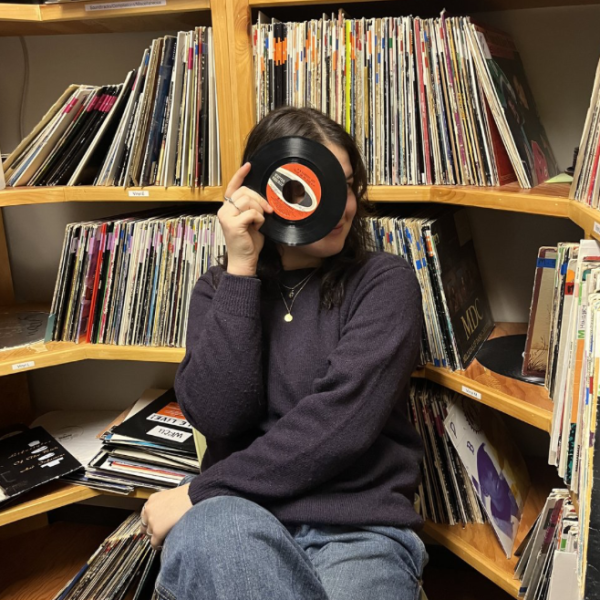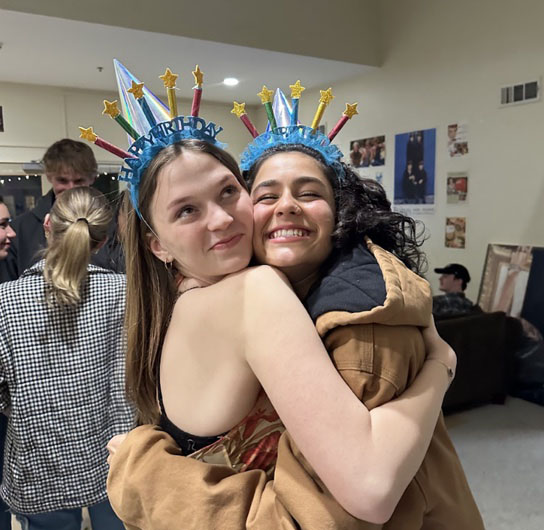Taryn Jordan: Women’s Studies and the Legacy of Women at Colgate
A Professor of Women’s Studies who came to Colgate in Fall 2019, Taryn Jordan’s professional career did not always center around women’s studies, as she earned a political science degree as an undergraduate. When Jordan reached her mid-twenties, she was involved in retail and realized that she wanted to take her career in a new direction. Jorden earned a Ph.D. in Women’s, Gender and Sexuality Studies at Emory University in Atlanta and has immersed herself in the field ever since. In her classes at Colgate, Jordan teaches students to think critically about the connections between classroom material and the world in which they live. Jordan and her students explore Colgate’s past as a single-sex institution and the legacy of women since the switch towards co-education in 1970.
Jordan’s passion for women’s studies emerged because of the limitless nature of the field; Jordan feels that they are able to tackle challenging questions relating to their own identity and gender expression. One of the prominent reasons Jordan switched from political theory to women’s studies is that they were interested in incorporating their experiences and personal history into the study of theory.
“It feels very affirming to be in a women’s studies department. It allows me to think to my full capacity. I don’t have to take some part of myself away and put it on the shelf because I have to think a certain way. It allows me to engage with my feelings, emotions, my experiences, my own history, continental philosophy, poetry and even cookbooks,” Jordan said. “What is really compelling about women’s studies is that it allows me to bring a certain sense of wholeness to the work and so when I’m writing or teaching it feels like there is no subject that is off-limits. I think that’s exciting as a teacher, as a scholar, as a Black woman. If it wasn’t for women and sexuality studies I don’t know if I would be a scholar.”
Jordan also prompts their students to reflect on identity within her courses. In Jordan’s Feminist Methodolgies course, students explore the Colgate archives and study materials specifically relating to Colgate’s co-education shift. Jordan teaches two oral histories from alumnae of Colgate. One is from the perspective of a white alumna who talked about the complications and difficulties of the institution figuring out how to incorporate women into campus life. Another student, a Black woman, presented an oral history on her distinct race and gender experiences on campus. The students in Jordan’s class can compare the experiences of these two women at Colgate. Jordan explains that the class then uses the contrasting accounts to examine the experiences of current Colgate students.
“The oral histories open the door to allow students to think about their own relationship with the institution in terms of their own identities and experiences here. Women’s studies is about theory and practice so here’s a moment where two Colgate alum were doing a very scary thing at the time, shifting the environment and how the campus did education,” said Jordan. “It’s a really important period for the institution because things changed and it’s important for students to get a sense of what Colgate was like and how in some ways it is still the same, and how in other ways it has changed.”
Students in Jordan’s Senior Seminar in Women’s Studies conduct their own research on campus by addressing questions about how power, gender and sexuality function not only at Colgate, but in broader society. Jordan’s students are then able to combine theory and practice by drawing their own conclusions based on research questions that are important to them.
Looking forward, Jordan hopes students will continue to come to the women’s studies department to ask hard questions of both themselves and the institution — doing so honors the legacy of the first women at Colgate who did the same, and allows students to understand themselves and the world around them. There is a common misconception that women’s studies is for women only. Jordan believes that gender and sexuality studies can be beneficial to everyone.
“Feminism is for everybody. We all have questions about gender, sexuality and our relations to one another,” Jordan said.















